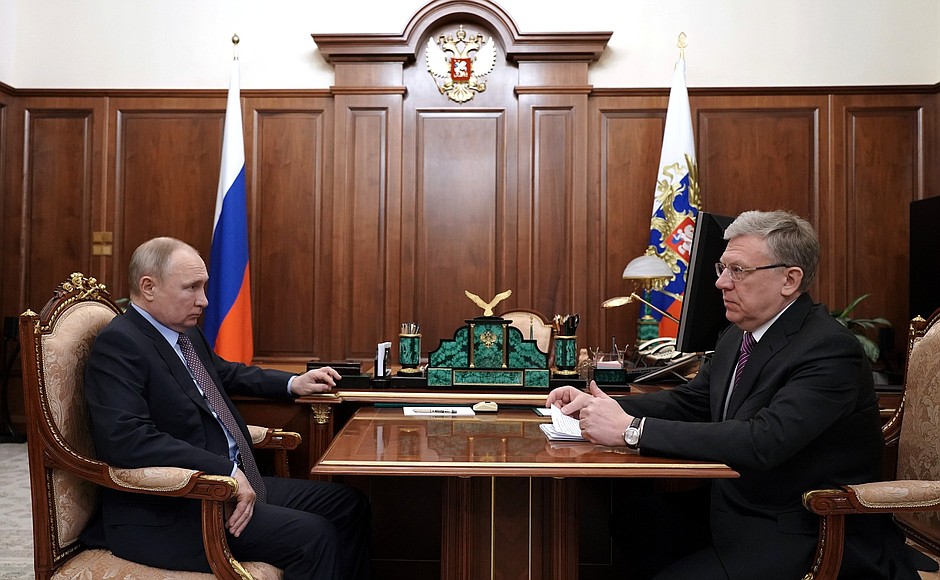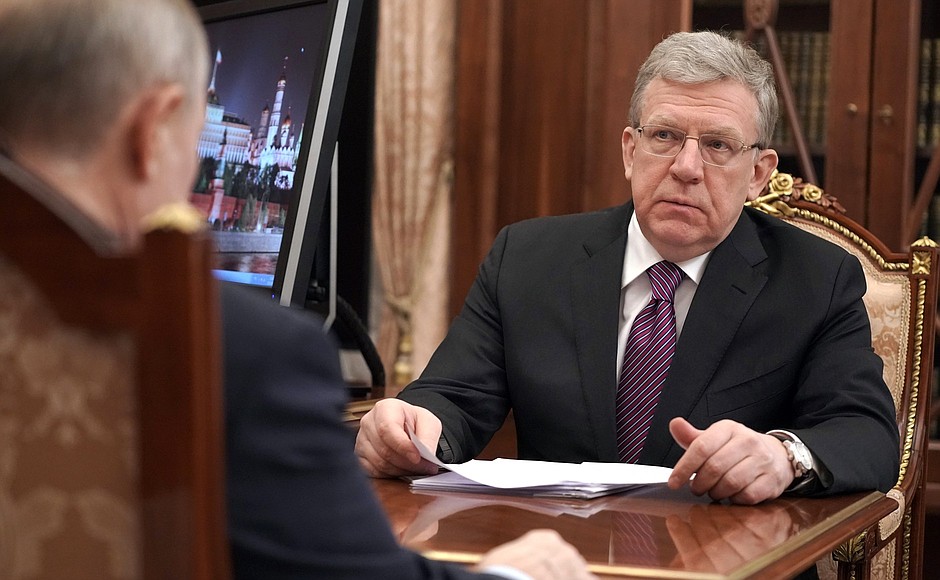President of Russia Vladimir Putin: Mr Kudrin, let us talk about the Accounts Chamber’s performance in 2020.
Chairman of the Accounts Chamber Alexei Kudrin: Thank you, Mr President.
Last year was difficult because of the pandemic, and many ministries switched to remote work. By decision of the Government, supervisory authorities, including the Federal Taxation Service and others, made a pause, a break in inspections.
We are also a supervisory authority, and we also made the decision to take a complete break for two months. However, we did not waste this time. We updated the standards, conducted training for inspectors, analysed previously obtained results and drew certain conclusions.
Thus, we gave the ministries some leeway so that they did not have to go offline. Some inspections were held remotely, and the number by on-site inspections was reduced by 38 percent. Of course, the main results and violations are generally revealed during on-site inspections.
Naturally, last year we identified fewer violations, but I think this was just such an unusual year. We held 334 probes, cancelled 35, but conducted six new ones related to the analysis of extensive measures to support the population and businesses.
We checked incentive payments to doctors. Following the complaints we received, we carried out an integrated investigation in all regions involving their supervisory and accounting authorities with inspections of specific hospitals.
Now the probe into purchases of medical equipment, including ventilators, is nearing completion. We are checking the guarantees that are provided to the business: whether everything is in order, whether the guarantees are received on time, and whether there are any violations. Such inspections, as a rule, have been completed, and will soon be reviewed by the board.
In general, as for the monitoring of incentive payments to doctors, I can say that the Government has resolved the situation. The number of negative comments and complaints has dropped significantly. In this sense, the regulatory framework is finally working. Initially, it was done so that each region and each municipality or hospital determined certain parameters of these payments themselves. Now we have finally reached some very important principles. Although there is a very large difference between regions in terms of the number of doctors per patient who receive this payment, which differs greatly at times, the work continues.
There are control measures and expert analytics. Control measures mostly consist of inspections of the disposal of special-purpose funds, possible embezzlement and the quality of the balance sheet. We conduct the majority of such inspections, 244; after all, this is our main job.
Expert analytics are measures used to expose systemic management problems, the conveyance of transfers and the payment of allowances. Following these inspections we usually offer recommendations for improving the tools used to provide such assistance so as to be able to reduce the number of violations.
(Alexei Kudrin provided the statistics of such measures.)
We returned 11 billion rubles to the budget, more than in 2019, despite the pandemic. Courts ruled that the decisions regarding 39 violations were correct; punishment has been meted out to the concerned officials and legal entities. Fines have been approved in accordance with the Code of Administrative Procedure. We forwarded 52 cases to prosecutor’s offices, the Investigative Committee, the Interior Ministry and the FSB. In other words, we are keeping up with our work despite last year’s obstacles.
In addition, we conduct thorough examinations of draft laws and Government regulations. We made 1,474 conclusions regarding them, which is more than the year before. More regulations were issued on support packages in connection with the pandemic. Our suggestions are usually accepted. In short, we are monitoring the quality of regulations as well.
Of course, some inspections are more important than others. First of all, we inspected the quality of corporate governance of state-owned companies, state-owned JSCs and so-called federal state unitary enterprises. We have established that there is no unified register of such companies, which is why the data of various government agencies and the Federal Taxation Service differ. By the way, the Government acted promptly and rallied the necessary forces together so as to be able to get a true picture of what’s going on.
Understandably, there are also questions about a large number of unprofitable enterprises and the fact that no measures or not enough measures are being taken to improve their efficiency. The dividend policy is not streamlined, formalised in any regulations or based on coordinated principles. Decisions on the payment of dividends are usually made individually, and hence the budget receives less than is due to it.
To be continued.



